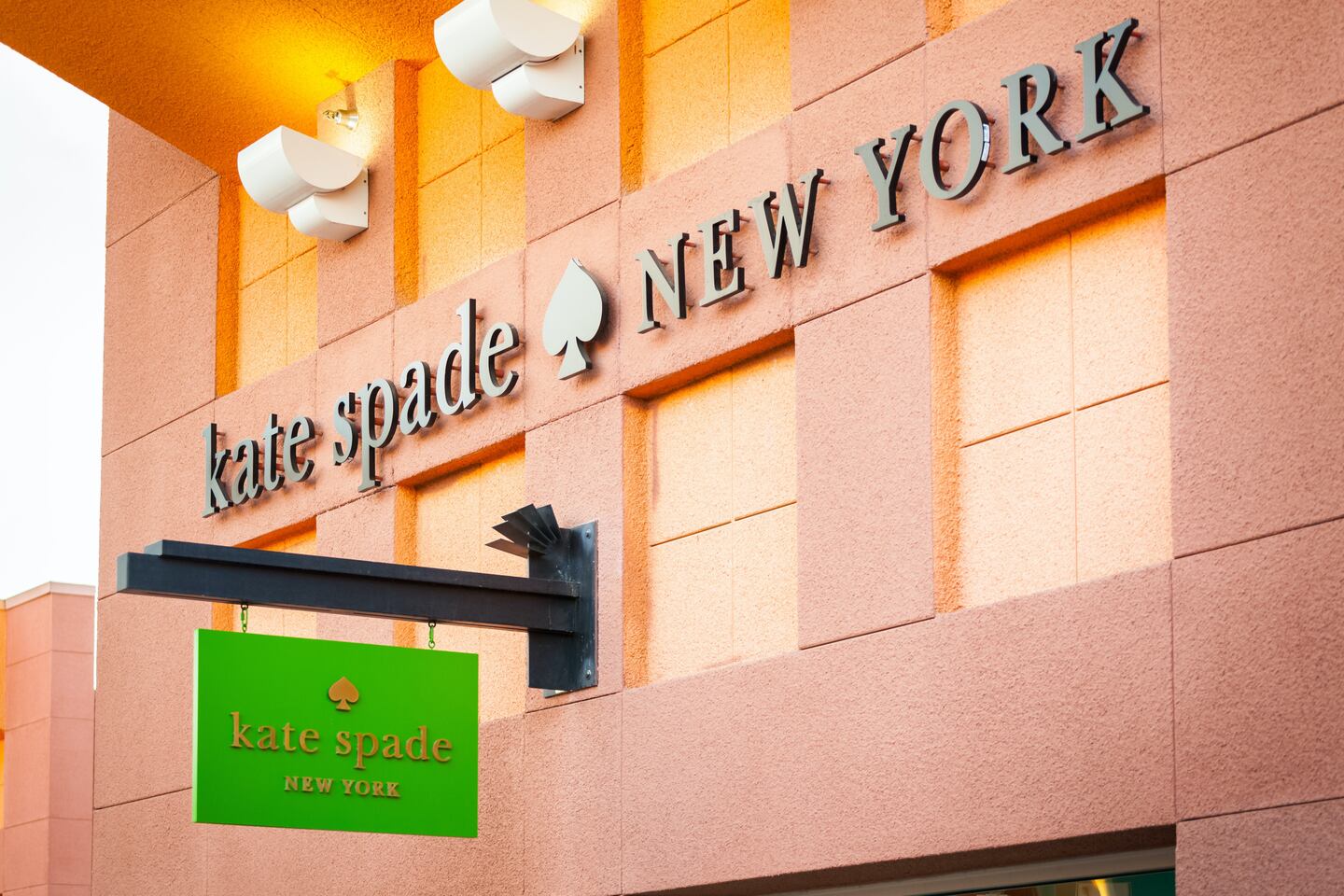
The Business of Fashion
Agenda-setting intelligence, analysis and advice for the global fashion community.

Agenda-setting intelligence, analysis and advice for the global fashion community.

NEW YORK, United States — Kate Spade should stop dragging its heels.
The handbag maker on Tuesday reported first-quarter sales fell 2.4 percent from a year ago, or 8.1 percent excluding e-commerce — its first same-store sales decline since 2010. Shares fell 8 percent.
Kate Spade's precipitous sales decline gives potential suitors such as Coach Inc. and Michael Kors Holdings Ltd. even more reason not to pay a high premium to buy the $3 billion company.
The company decided not to hold its usual conference call with analysts or provide future sales guidance, citing the ongoing process of selling itself. But it's safe to say that if Kate Spade had better news to report, it probably would have.
ADVERTISEMENT
Instead, the downbeat results are further evidence of the build-up in Kate Spade shares in anticipation of a deal has been excessive, as Brooke Sutherland and I argued in March.
At the time, shares had climbed by about 60 percent in three months. The company was valued at about 10 times projected 2017 EBITDA. Caerus Investors, the activist investor pushing Kate Spade to sell itself, was arguing a 50 percent premium was warranted.
It was all a bit too much.
Kate Spade shares did, however, start coming back to earth in early April, after Reuters reported the takeover process was bogged down, adding to the dismay of shareholders hoping to cash in on a deal early in the year. Suddenly the luxury brand started to lose its sparkle.
The curious thing was that it was Kate Spade, not its suitors, asking for more time to negotiate a deal after receiving an offer from Coach Inc., at least according to the Reuters report. That seemed odd because the job of Kate Spade's board should have been attaining the highest possible takeover price, an option that began to fade as time passed, investor euphoria cooled, and the company lost leverage to command a higher price.
Of course, it's also possible the market built up unrealistic expectations of a deal price, one potential suitors would never accept.
That would have left Kate Spade's board with the awkward task of managing optics in order to seem like it was delivering shareholders a fair deal, while still taking something much less than the market expected. A conveniently dismal quarterly earnings report driving shares back to reasonable levels would certainly help in that regard.
This is all speculation. The company has yet to comment on the sale process. But now that the bad news is out and shares have come back to reality, perhaps the company and its suitors can get back to business and close the deal?
ADVERTISEMENT
The views expressed in Op-Ed pieces are those of the author and do not necessarily reflect the views of The Business of Fashion. This column does not necessarily reflect the opinion of Bloomberg LP and its owners.
By Shelly Banjo; editor: Mark Gongloff.
The former CFDA president sat down with BoF founder and editor-in-chief Imran Amed to discuss his remarkable life and career and how big business has changed the fashion industry.
Luxury brands need a broader pricing architecture that delivers meaningful value for all customers, writes Imran Amed.
Brands from Valentino to Prada and start-ups like Pulco Studios are vying to cash in on the racket sport’s aspirational aesthetic and affluent fanbase.
The fashion giant has been working with advisers to study possibilities for the Marc Jacobs brand after being approached by suitors.